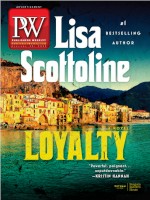Though I’ve been called a Jewish princess by disgruntled ex-boyfriends, on the surface I have nothing in common with the British Christian prince now residing in California. Yet as a Manhattan memoirist who writes provocative books my parents detest, I’m completely overidentifying with Harry. Except for his $20 million advance; interviews with Oprah, Strahan, Colbert, and Cooper; the record-breaking millions of copies sold; and the frozen body part, the Duke of Sussex and I are kindred spirits and soulmates, uncannily connected. After all, feeling inferior to a close sibling, fleeing the family business, and selling a randy, revealing memoir to Random House that scandalizes relatives was my story first.
Twenty years ago, when my tell-all Five Men Who Broke My Heart debuted from our mutual publisher, I was the loudmouthed rebel who partied too much, moved to the big city for a creative career, married a sympathetic partner, and became a shrinkaholic who’d overanalyze everything publicly. Okay, my Bubbe Yetta’s Fort Lauderdale bungalow wasn’t as big as his Gan-Gan’s Balmoral Castle. But our unrest led us both to booze, pot, cocaine, and magic mushrooms. I lost my virginity outside, too, to an older paramour. And just like Harry, going into therapy to unravel it all put me on a different planet than my inner circle.
In my own childhood, my staid, stiff-upper-lip (similarly balding) brother pleased everyone by following in my father’s footsteps. He dutifully stayed in our hometown, kept family laundry private, and became a physician like Dad, as he was supposed to. As kids, my brother once let his pet white rat out in my bedroom at four in the morning, while my other sibling took pictures of my reaction. As they trashed my politics and Oprah-inspired psychobabble, I felt like I was the victim of extreme insensitivity.
Yet it turned out my well-meaning mishpachah were merely flawed humans who didn’t know what to make of someone who didn’t fit into their conservative realm. While they labeled my racy nonfiction “fiction,” my shrink had me tell them, “You can be proud of my success selling a book without liking the book.” They did come to my launch party, but, walking in, they whispered, “How are you holding up?” as if they were sitting shiva.
My folks eventually forgave me and we convened for birthday and Bar Mitzvah celebrations. Yet after escaping, I had the same conundrum as Harry, in which critics claimed the clan I couldn’t wait to escape were my best characters.
Aside from being jealous that a rich ginger with other job prospects is muscling out full-time scribes who have no connections with his chronicle of the five royals who broke his heart, I’m just wild about Harry. He’s revitalizing my favorite industry and oft-maligned genre. Having also collaborated on other people’s stories, I’m even obsessively identified with his ghostwriter. Though I admit Tender Bar and Agassi’s autobiography sold a few more copies than my low four-figure sales.
It’s easy to see why Spare resonates. The world watched his pa cheat on his beautiful naive mum with his secret mistress and divorce Diana, leaving her unprotected. At 12, Harry was traumatized by her loss. Making matters worse, Pa married Harry’s dangerous stepmum, elevating her to queen consort. It’s dramatic enough for several more seasons of The Crown, which Haz charmingly admitted to watching.
I’m thrilled that Harry debunked the Anglo fairy tale, avenged his mum’s mistreatment, reminded everyone how illicit affairs can haunt children, and tattled that Willy was a bully. Bestselling memoirist Anne Lamott said, “You own everything that happened to you. Tell your stories. If people wanted you to write warmly about them, they should have behaved better.” Joan Didion added, “Writers are always selling someone out.”
Meanwhile, envious authors—from Piers Morgan (infamous for his sexism, xenophobia, running of fake war photos, and perpetuating of phone hacking scandals) to Patti Davis (who has made a cottage industry out of depicting her famous parents for five decades)—have questioned why the prince wrote such a candid, catty, confessional book.
To me it’s obvious. First, remember that the Obamas, Clintons, Bushes, Carters, and Trumps, as well as Fergie, made more money from book royalties than all their official work put together. Clearly Harry wanted to control the narrative with his voice and side of the story, which now can be heard singing on Audible. While his father had to wait until age 74, Harry finally gets to be #1 at 38 after learning America’s first rule: publishing well is the best revenge.
Susan Shapiro is the author of several books, including The Forgiveness Tour and the forthcoming American Shield (Counterpoint, Oct.).



 Volume 270
Issue 5
01/30/2023
Volume 270
Issue 5
01/30/2023





